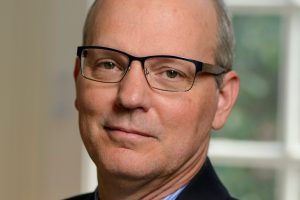
A Johns Hopkins University team led by Michael Betenbaugh, professor in the Department of Chemical and Biomolecular Engineering, and Pricila Hauk, assistant research scientist, are part of a $20.6 million project launched by nonprofit institute BioMADE. The initiative, which comprises nine projects, is aimed at advancing bioindustrial manufacturing education and innovation.
The project was announced Sept. 14 but had been in the works for more than a year. Hauk explained that the team applied when the institute announced a special funding opportunity for research toward coronavirus response and preparedness. Along with teams from University of California-Davis, University of Texas at Austin, and the University of Georgia, the team will work toward the central objective of developing and quantitatively comparing rapid and scalable heterologous protein expression systems. Each team will use a different platform to explore production of antigens in different expression systems. Overall, the platforms will be compared with current approaches in terms of speed, productivity, quality, and cost. The end goal is to create a new paradigm for distributed production and deployment of reagents for diagnostics and countermeasures in response to new disease outbreaks.
Currently most therapeutic proteins are produced using mammalian cells rather than microbial cell factories. The production of these mammalian cells is expensive, however, which can inhibit production. The goal of the team’s research is, as Hauk explained, to “obtain a glycoengineered filamentous fungi strain able to decorate antigens with glycans that more closely match or can be remodeled into those that are produced in mammalian cells.” Specifically the team is hoping to engineer Aspergillus sp to produce human-pattern glycosylated antigens which spike at high yields, fast speed, and low cost.
BioMADE is based in St. Paul, Minn. and has received $87 million in funding from the United States Department of Defense.
Portions of this story were excerpted from BioMADE.